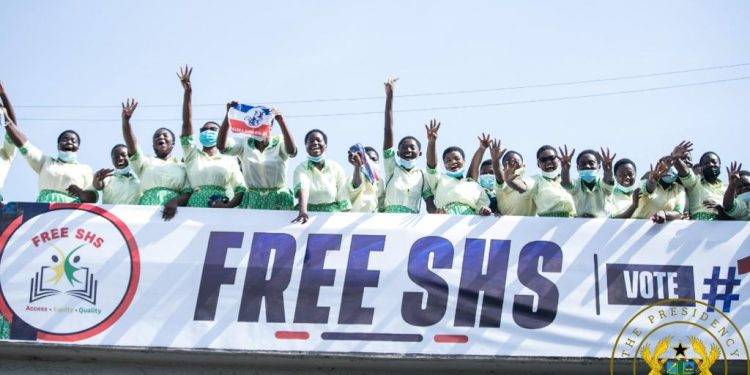The Institute for Education Studies (IFEST) has urged the government to review Ghana’s Free Senior High School (SHS) policy to ensure its sustainability and effectiveness. The call for review includes a proposal for parents to share part of the financial burden to address the funding challenges currently facing senior high schools across the country.
This appeal follows concerns raised by the Conference of Heads of Assisted Secondary Schools (CHASS) about overdue funds essential for the smooth operation of schools as they prepare for the 2025 academic year. According to CHASS, delays in releasing funds for utilities, perishable goods, and other operational necessities threaten the reopening of schools scheduled for January 3, 2025.
In a communiqué signed by CHASS National Secretary Primus Baro, the group cited multiple unfulfilled promises by the Ministry of Education. They referenced prior communications in September and August 2024, as well as assurances made by the Minister of Education during a December 18, 2024, Zoom meeting. Despite these assurances, the financial situation remains dire, leaving school administrators unable to meet critical needs.
CHASS expressed concern that without the release of the required funds, the reopening of schools could be compromised. They warned of the potential negative impact on infrastructure maintenance, quality education delivery, and the overall welfare of students.
Patrick Danquah, Deputy Director of IFEST, echoed these sentiments during an interview on Channel One Newsroom. He emphasized the need for a comprehensive review of the Free SHS policy, suggesting that a partial cost-sharing model could alleviate some of the financial strain on the government while ensuring that the program remains effective.
“Free SHS needs to be reviewed to consider allowing parents to share part of the cost,†Danquah stated. “Many parents previously bore these costs and were doing so effectively. Revisiting this model could relieve the pressure on government resources while maintaining access to quality education.â€
Danquah acknowledged the success of the Free SHS initiative in increasing enrollment and reducing the financial burden on families. However, he pointed out that the current funding challenges undermine its long-term viability. He suggested that introducing a hybrid model, where parents who can afford it contribute to specific costs, could provide a balanced solution.
The Free SHS policy, introduced in 2017, was lauded as a groundbreaking initiative aimed at improving access to secondary education for all Ghanaian children. While the program has significantly boosted enrollment, it has faced criticism over funding gaps that have led to delays in disbursing essential resources to schools.
CHASS has been vocal about the challenges associated with these funding delays. According to the group, many schools are struggling to settle utility bills, procure food supplies, and address other pressing needs. These challenges, they argue, not only jeopardize the effective functioning of schools but also compromise the quality of education provided to students.
In their communiqué, CHASS highlighted the potential consequences of failing to address these issues, including disruptions to academic activities and a decline in student welfare. They appealed to the government to expedite the release of funds to ensure that schools can reopen on schedule and operate smoothly.
Danquah’s call for a review of the Free SHS policy has sparked discussions among education stakeholders. While some support the idea of cost-sharing, others have expressed concerns about the potential exclusion of underprivileged families who may be unable to afford even minimal contributions.
Critics of the current Free SHS model argue that the program’s universal approach places an unsustainable financial burden on the government. They suggest that a more targeted approach, where subsidies are provided based on need, could help address funding challenges while ensuring that no child is left behind.
The Ministry of Education has yet to respond to the calls for a policy review. However, the ongoing challenges faced by schools under the Free SHS program underscore the need for urgent action to address funding gaps and ensure the program’s sustainability.
As the January 2025 reopening date approaches, education stakeholders continue to emphasize the importance of timely interventions to prevent disruptions to academic activities. The debate over the future of the Free SHS policy highlights the broader challenges facing Ghana’s education sector and the need for innovative solutions to ensure that every child has access to quality education.
In the coming weeks, all eyes will be on the government and the Ministry of Education as they navigate these challenges. The outcome of this debate will likely shape the future of secondary education in Ghana, with implications for the country’s development goals and social equity agenda.


